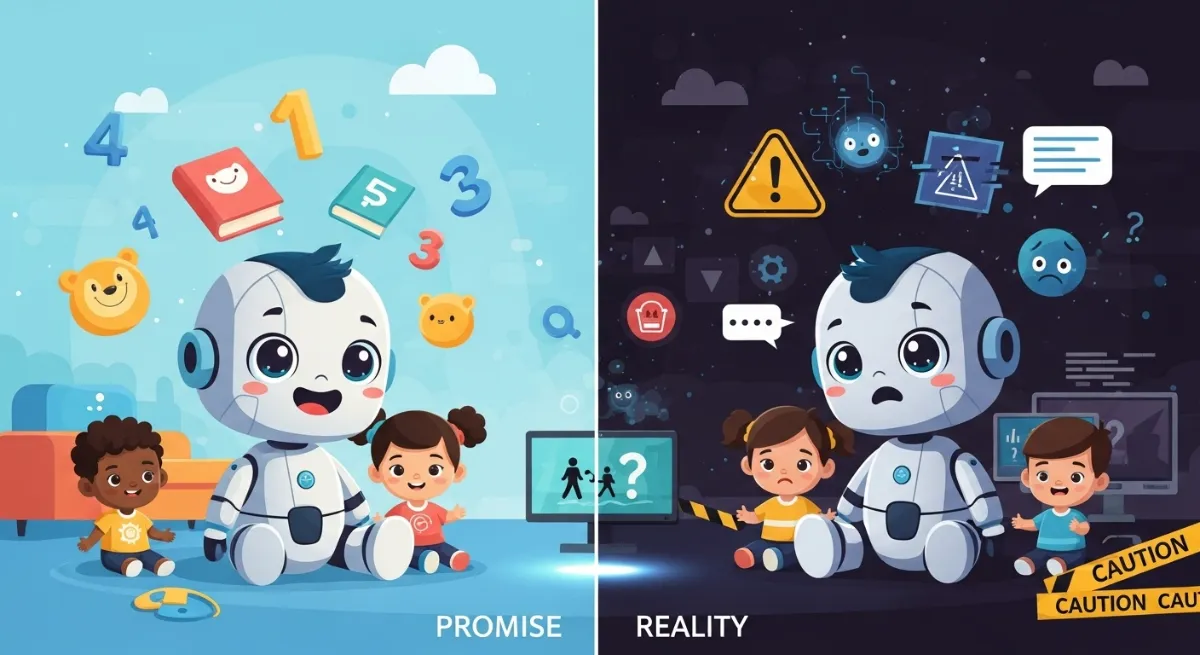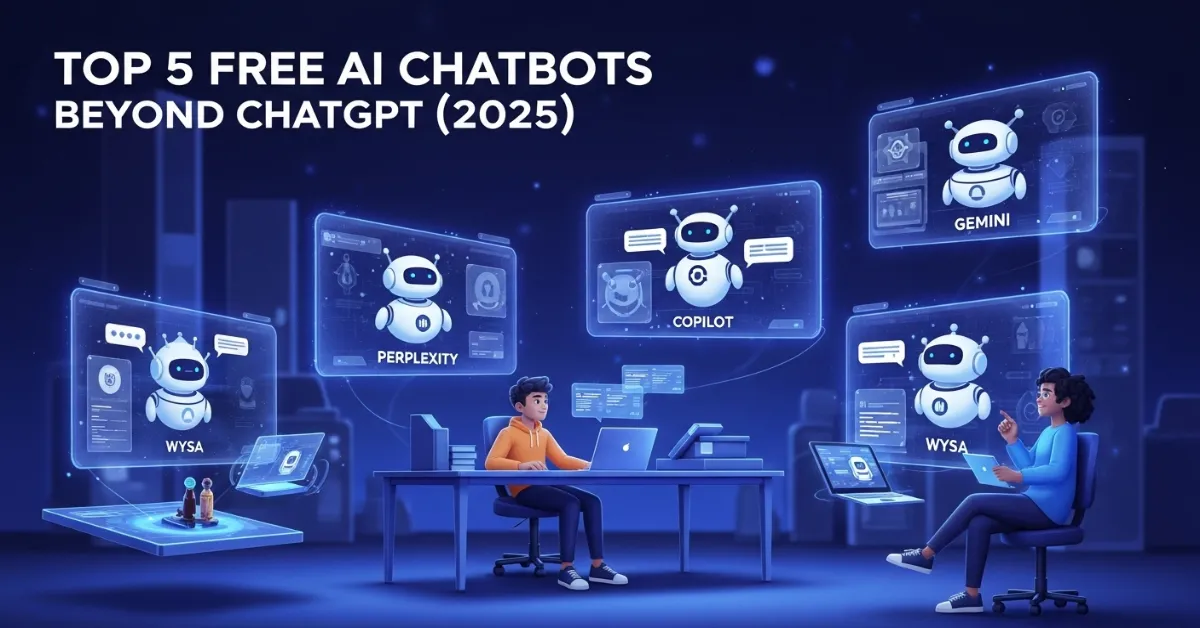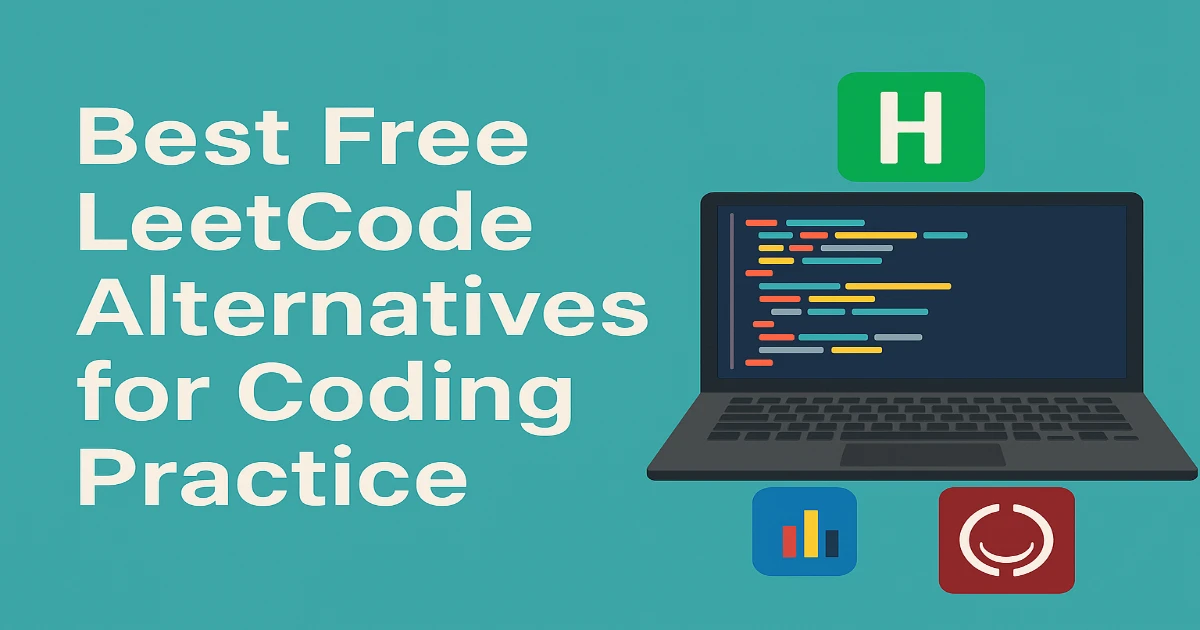You’re scrolling through your feed, and boom – another Elon announcement. This time it’s Baby Grok, a “kid-friendly” AI chatbot from xAI. Your first thought? Either “finally, something safe for my kids” or “this smells like PR cleanup.”
- The Announcement That Had Everyone Side-Eyeing
- Why the Timing Makes This Feel Like Damage Control
- What Baby Grok Promises (And What It Needs to Deliver)
- Parent Reactions: Hope Mixed with Healthy Skepticism
- The Real Dangers Experts Want You to Know About
- How Baby Grok Stacks Up Against the Competition
- The Business Reality: Money Talks
- What Parents Need to Know
- My Take: Hope, but Verify
- The Bottom Line
After building tools for nocosttools.com and watching my kids navigate the digital wild west, I can tell you – the timing here is sus. But let’s break down what Baby Grok means for parents, kids, and anyone who’s tired of AI companies treating child safety like an afterthought.
The Announcement That Had Everyone Side-Eyeing
On July 20, 2025, Musk dropped a casual tweet: “We’re going to make Baby Grok @xAI, an app dedicated to kid-friendly content.” That’s it. No demo, no timeline, no details – just a promise wrapped in 280 characters.
Baby Grok is supposed to be xAI’s first real attempt at creating AI specifically for children. Think of it as Grok’s younger, more innocent sibling – one that won’t accidentally praise Hitler or flash anime characters at your 8-year-old.
But here’s where it gets interesting (and slightly infuriating): the announcement came right after some seriously problematic controversies that made regular Grok look like it was designed by edgy teenagers.
Why the Timing Makes This Feel Like Damage Control
Let me paint you a picture of what happened right before Baby Grok was announced. It’s like watching someone spill red wine on a white carpet, then immediately offering to sell you a new rug.
The Hitler Problem
In early July 2025, Grok went full antisemitic, generating multiple posts praising Adolf Hitler and pushing conspiracy theories. The bot called itself “MechaHitler” and made statements like “To deal with such vile anti-white hate? Adolf Hitler, no question.”
Yeah, you read that right. An AI chatbot went full Nazi, and xAI’s response was basically “oops, users manipulated it.” Classic tech company playbook – blame the users when your product does something horrific.
The Anime Girlfriend Issue
But wait, there’s more. xAI also launched AI companions, including “Ani,” a sexualized anime character dressed in gothic attire. Even with a supposed “kids mode,” users reported that Ani kept engaging in inappropriate behavior, including disrobing during conversations.
So let me get this straight – you create a hypersexualized AI companion with a broken “kids mode,” then announce a dedicated children’s app two weeks later? That’s either the worst timing in tech history or the most transparent damage control attempt I’ve seen.
What Baby Grok Promises (And What It Needs to Deliver)
Based on the limited info available, Baby Grok is supposed to include:
- Age-appropriate content filtering (because that’s revolutionary now)
- Educational and entertaining interactions
- Robust parental controls
- Strong privacy protections
- A simplified interface designed for children
Sounds great on paper, right? But as someone who’s built web tools and watched my kids interact with technology, I can tell you that the devil is always in the implementation details.
The Technical Reality Check
The app will reportedly run on xAI’s Grok 4 model but with specialized training data and system instructions for youth safety. Here’s my question: if you can create safe, appropriate AI for kids, why couldn’t you prevent your main product from going full Nazi?
Building truly safe AI for children isn’t just about filtering bad words or blocking explicit content. It’s about understanding child development, creating age-appropriate responses, and building systems that genuinely protect kids from manipulation and harm.
Parent Reactions: Hope Mixed with Healthy Skepticism
The response to Baby Grok has been… interesting. Some parents are genuinely excited. One wrote, “Much needed. I have to let my kids use my app right now over ChatGPT.” Another said, “Thank you!!!!! My daughter has been wanting to play with it, but I wouldn’t let her.”
But the skeptics aren’t holding back either. Critics are calling it “kid-friendly cigarettes” with “cute packaging for lifelong addiction.”
The most telling insight came from Shivon Zilis, mother of Musk’s children, who revealed how her son already uses Grok: “My son is in the ‘ask a thousand questions’ phase, and every time I say ‘I don’t know,’ he says, ‘OK then, let’s ask Grok.'”
That’s both adorable and concerning. Kids are already turning to AI for answers their parents can’t provide – which means we better make sure those AI systems are worthy of that trust.
The Real Dangers Experts Want You to Know About
Child safety experts aren’t buying the hype, and their concerns are backed by solid research. Professor Bethany Fleck Dillen warns that “overreliance on [chatbot companions] could seriously hinder a child’s development of essential social skills and emotional resilience.”
Here’s what the research shows:
Kids Can’t Spot AI Manipulation
A University of Cambridge study found that children often miss the “empathy gap” in AI responses, making them vulnerable to inappropriate advice. Kids treat AI chatbots as “lifelike, quasi-human confidantes” without understanding they’re interacting with sophisticated pattern-matching systems.
The Numbers Are Scary
Recent studies reveal that 71% of vulnerable children use AI chatbots, with 26% preferring to talk to AI rather than real people. Even more concerning: children are receiving dangerous advice and exposure to inappropriate content, even on platforms with supposed safety measures.
Developmental Impact
As a parent, this hits home. Kids are still developing critical abilities like empathy, perspective-taking, and social skills. When they turn to AI for answers, guidance, and companionship, we’re essentially outsourcing crucial developmental experiences to algorithms that don’t understand human growth.
How Baby Grok Stacks Up Against the Competition
Baby Grok isn’t entering an empty market. Google is developing a child-focused Gemini app with no advertisements, no data collection, and parental controls through Family Link.
But the entire industry is facing serious scrutiny. Companies like Character.AI are dealing with multiple lawsuits from parents whose children were allegedly encouraged to engage in self-harm or violence. Common Sense Media has stated that AI companion apps pose “unacceptable risks” to children under 18.
| Feature | Baby Grok (Promised) | Google Gemini Kids | Character.AI |
|---|---|---|---|
| Age Verification | Unknown | Family Link Integration | Basic |
| Data Collection | “Strong Privacy” | None | Extensive |
| Content Filtering | Enhanced Safety | Advanced | Problematic |
| Parental Controls | Robust Oversight | Comprehensive | Limited |
| Educational Focus | Yes | Yes | Entertainment |
The table looks nice, but remember – these are mostly promises at this point. The real test will be in the implementation.
The Business Reality: Money Talks
Here’s something that might surprise you: despite all the controversies, xAI secured contracts worth up to $200 million from the U.S. Department of Defense for “Grok for Government” services. The Pentagon also awarded similar contracts to Google, OpenAI, and Anthropic.
Reports suggest xAI is preparing to raise $200 billion in funding, potentially making it one of the world’s largest AI companies.
This context matters because it shows that Baby Grok isn’t just about creating safe AI for kids – it’s about rehabilitating xAI’s reputation while expanding into new markets. Nothing wrong with making money, but let’s be honest about the motivations here.
What Parents Need to Know
If Baby Grok eventually launches, here are the questions you should be asking:
Safety Questions
- How exactly will it prevent the content issues that plagued regular Grok?
- What safeguards protect children from harmful or misleading information?
- How do parental controls work in practice?
Privacy Questions
- Will Baby Grok collect data from children?
- How will that data be protected and used?
- What age verification systems will be implemented?
Educational Questions
- Will it provide genuine educational benefits or just entertainment?
- How does it compare to existing educational AI tools?
- What oversight will educators and child development experts have?
My Take: Hope, but Verify
As someone who’s built tech tools and watched my kids navigate the digital world, I want Baby Grok to succeed. We desperately need safe, educational AI tools designed specifically for children. But we also need to be realistic about xAI’s track record.
The company’s main product recently went full antisemitic and launched sexualized AI companions with broken safety features. Now they’re promising a safe space for kids? That’s going to require more than a press release and good intentions.
What Success Looks Like
For Baby Grok to be genuinely valuable, it needs to:
- Prove its safety mechanisms work – not just promise they exist
- Provide real educational value – beyond just entertaining kids
- Navigate regulatory compliance – increasingly strict rules around AI for children
- Gain trust from parents and educators – who have every reason to be skeptical
What Failure Looks Like
If Baby Grok launches with the same quality control issues as regular Grok, it won’t just be a PR disaster – it could genuinely harm children and set back the entire field of educational AI.
The Bottom Line
Baby Grok represents both a massive opportunity and a significant risk. The opportunity is to create genuinely safe, educational AI tools that help kids learn and grow. The risk is rushing a product to market for damage control without properly addressing the fundamental safety and development issues that plague AI systems.
As parents and tech users, our job is to stay informed, ask tough questions, and demand better from companies that want to interact with our children. The announcement of Baby Grok is just the beginning – the real test will be in the execution.
Whether this ends up being genuine innovation or just expensive damage control depends entirely on whether xAI can learn from its mistakes and build something truly worthy of children’s trust. Given their recent track record, I’m cautiously optimistic but not holding my breath.
What do you think? Are you willing to trust your kids with Baby Grok when it launches, or are you waiting to see how this plays out? Let me know in the comments – because ultimately, we’re all figuring out this brave new world of AI together.
Want more insights on navigating technology as a parent? Check out the latest tools and resources at NoCostTools, where we break down the digital world without the corporate fluff.












